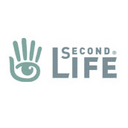22C3 - 2.2
22nd Chaos Communication Congress
Private Investigations
| Speakers | |
|---|---|

|
Cory Ondrejka |
| Schedule | |
|---|---|
| Day | 3 |
| Room | Saal 1 |
| Start time | 16:00 |
| Duration | 01:00 |
| Info | |
| ID | 931 |
| Event type | Lecture |
| Track | Culture |
| Language | English |
| Feedback | |
|---|---|
|
Did you attend this event? Give Feedback |
Changing Realities
Innovation, user-creation, activism and entrepreneurship in Second Life

The 3D digital world of Second Life has been completely built by its residents. Running on a growing grid of computers, SL's real-time collaborative-creation tools and physical simulation allow for creativity of stunning depth and breadth.
Second Life is unique virtual world, completely created by its residents. Hosted on a grid of over 1000 computers, Second Life is the home to over 60,000 residents from all over the world. By leveraging the powerful built-in tools for collaborative creation, virtual pioneers are building, exploring, learning, loving and fighting. Not content to remain behind the magic circle, wealth, ideas, games, and fashion are flowing back and forth between the real and the virtual worlds. Uniquely, the residents of Second Life retain their intellectual property rights in these creations.
The session will begin with an overview of the technology and history of Second Life. Based on a distributed grid, Second Life was created to allow both discrete and physical simulation across a large number of commodity computers. By combining this simulation space with compression, a highly complex and dynamic scene is streamed to client computers via a broadband connection. This ability to support a completely dynamic scene enables real-time, collaborative creation which in turn allows residents to succeed in creating 3D and scripted content, two areas traditionally considered too difficult to be generally accessible.
The body of the session will be a discussion of what residents have accomplished within Second Life in the 30 months since launch. By leveraging user-creation, residents have built everything from real-estate empires, games, and fashion houses to schizophrenia simulations, real-work jobs, and university education. The freedom to explore a virtually limitless design space without having to ask permission has resulted in an explosion of innovation that continues to accelerate.
Finally, the session will conclude with a look to the next several years. What happens as the increasingly interactive "web as platform" collides with the accelerating connectivity of Second Life? What new forms of business, research and activism appear as international groups collaborate within simulated places? As the false dichotomy of "play" versus "work" breaks down, how will society and culture adapt to a technically adept, international, online workforce that relies on technology generally identified as "a game"?
